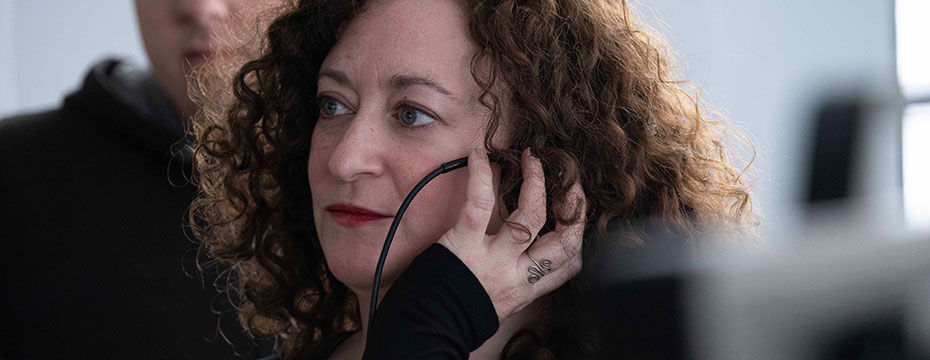University News Last updated 10 November 2025

BCU Alumna Michelle Singer, who graduated with a BA (Hons) in English Language and Literature in 2000, went from writing for the campus newspaper, Deuce, to creating a major production studio.
Michelle is the Co-Founder and Director of Production at Rockerdale Studios in London. The studios are behind major shows such as The Assembly, and I Am Darren on BBC One and Brad Boyz on Apple TV.
We caught up with Michelle to find out more about her career so far.
Q: Michelle, what do you remember about your time at BCU?
A: During Freshers Week I joined the magazine which was called Deuce, and I was given the opportunity to review an upcoming film by Chris Date, who was the newspaper editor.
I remember I was very excited to be writing for the university magazine. After the screening, I turned in my first review, and it got in the paper. Then, I said to Chris, there’s another screening next week, is it okay if I go and he said yes! Eventually, I went to all the filming screenings across almost every cinema in Birmingham. I watched the films and wrote about them, and I carved my career out from the get-go. I eventually gave myself the role ‘Arts Editor’ and by that point I also began going to all the comedy shows in the city.
Q: Did you do any work experience during your studies?
A: During my degree, I thought, how was I going to make myself different and standout to somebody receiving my degree qualification along with thousands of others? My dad suggested that I spend my holidays applying for positions in TV, so I could standout against other students who wanted to do the same.
I sent out CV’s and cover letters constantly to go for as much work experience within TV as I could. I did work experience in Birmingham working for the local news broadcast, where I did the live subtitling of the news broadcast as they went out for the late bulletins.
Q: How did you transition from sitting and reviewing art to creating it at Rockerdale Studios?
A: After graduating, I assumed that I would go and work for the BBC. I applied to loads of places and I got a couple interviews to be a Runner. But soon after, Stu Richards, who was a friend of mine and who I met through standup comedy, got in contact. He had his project commissioned by the BBC Script Commission and asked if I would work with him. So, that’s how we started and we got a commission for a series. We made this show together and it was brilliant. We loved it, and knew that we wanted to try more, because it’s so fun to be your own boss.
Q: Can you tell me why it’s important for Rockerdale studios to base the work around accessibility and disability?
A: We are drawn to people who are comfortable being themselves. My business partner’s disabled and so representation is important to us on and off camera. We create an environment in which people who work with and for us are able to be their most comfortable in the work environment. So, we’ve built our business on that and now with the success of our show, The Assembly, that’s highly visible and brings together all the strands of things we were saying for years.
Q: How has the transition to streaming and online content changed television?
A: That’s a huge question. But TV in its current form is dying and we all know it. I’m fascinated that TV decision makers, commissioners and broadcasters still care about intense scheduling down to the time of day and they care about the numbers of people who watch live. It still dictates decisions in the industry.
The fact that people get to make their timetable and they get to choose what they want to watch, when they want, and is brilliantly democratic. The downside is the question of how people find new stuff. Now broadcasters aren’t spending a lot of money and time promoting shows. But then you wonder, how do people hear about good stuff that doesn’t have loads of money and time behind it? Nobody reads listings, magazines and reviews of TV shows anymore, so, you have to rely on social media or even word of mouth.
Q: What is your advice to students keen to follow in your footsteps?
A: I would advise students to reach out to those who are in the community and are alumni of the same university. I would be happy to see students from BCU send me an email, wanting to learn more about TV and production.